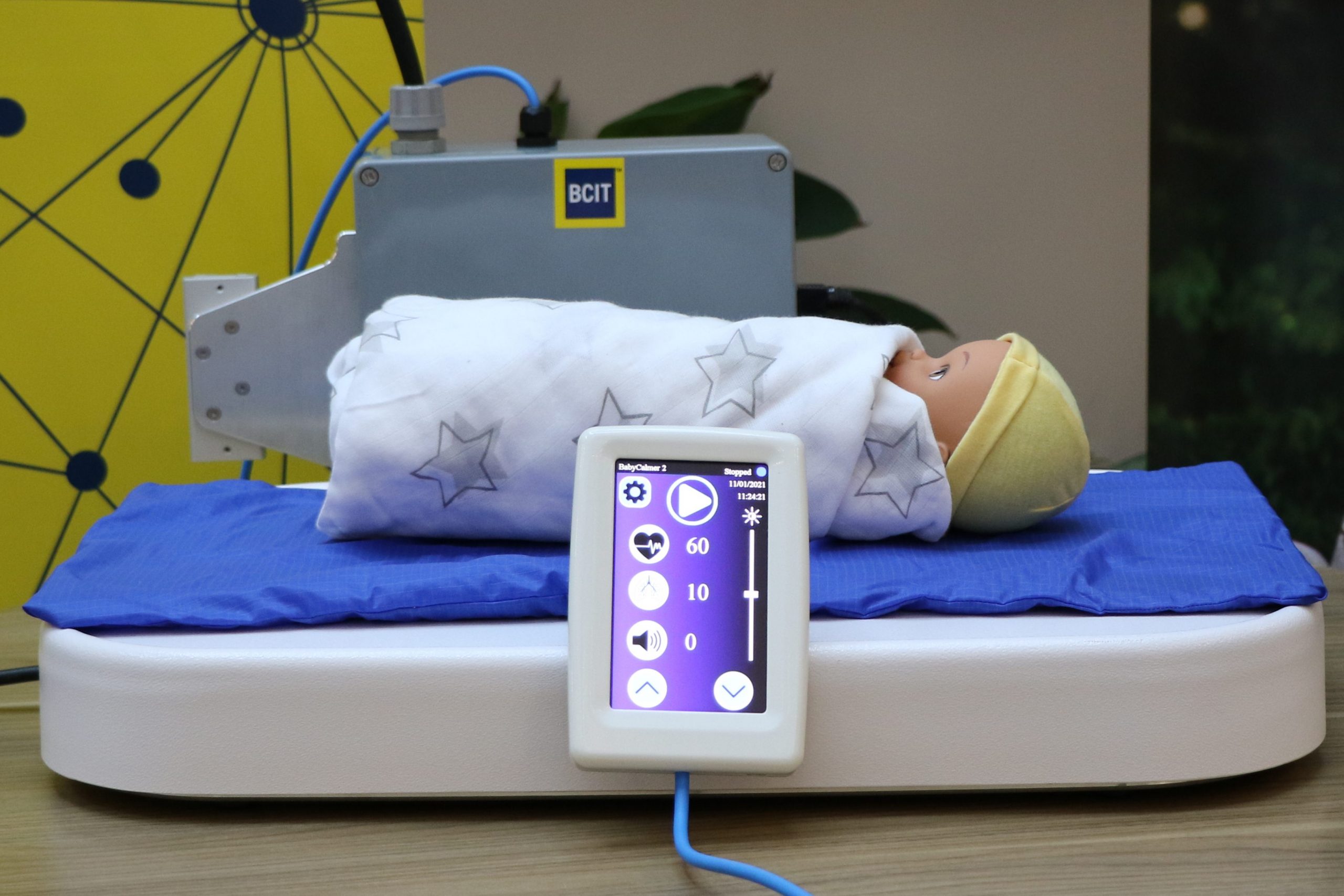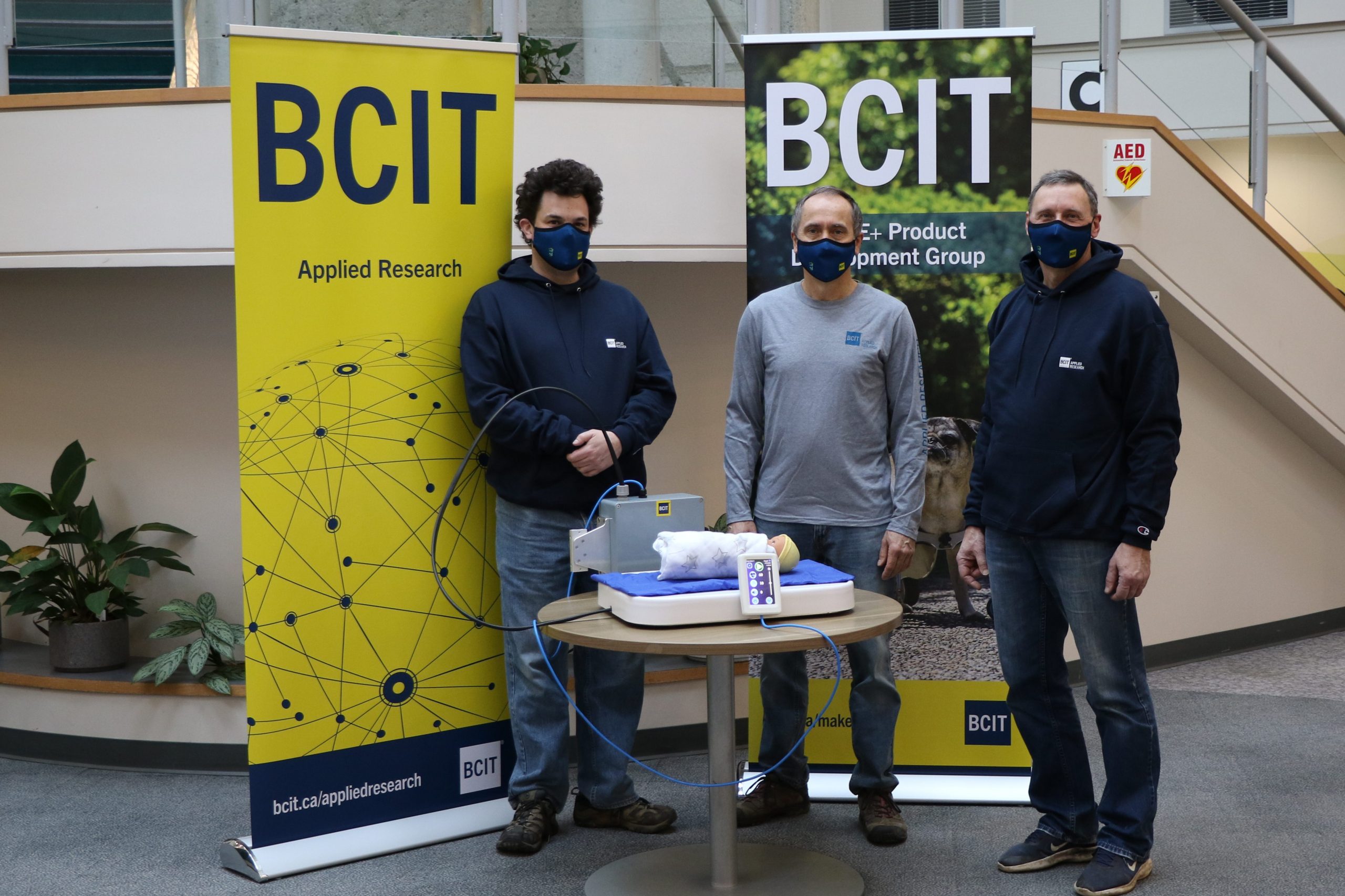BC Women’s Hospital + Health Centre received four new Baby Calmers to start off the new year.
The Baby Calmer, a therapeutic robot, is a technology developed by BCIT MAKE+ researchers for BC Women’s Hospital + Health Centre that simulates skin-to-skin contact for premature babies who are too fragile to be held by their mothers to promote bonding. Simulating the heartbeat along with the rise and fall of the mother’s chest, the Baby Calmer has been shown to reduce stress and help stabilize brain blood flow in babies who need medical procedures that can be painful but are necessary for their care.
The Baby Calmer, covered with a skin-like surface is designed as a platform that fits inside a Neonatal Intensive Care Unit (NICU) incubator, replacing the standard mattress.

“The new enhancements will allow us to test the efficacy of implementing Baby Calmer over a much longer period of time (weeks) rather than hours. This is a crucial step in being able to get the Baby Calmer into routine care,” says Dr. Liisa Holsti, Associate Professor in the department of Occupational Science and Occupational Therapy at UBC, and lead inventor of Baby Calmer and an investigator at BC Women’s Hospital + Health Centre, BC Women’s Health Research Institute (WHRI) and BC Children’s Hospital.
“This is the second iteration of the Baby Calmer. We enhanced the robustness of the platform mechanism, and updated the electronics to include data logging to keep track of cycles” says Gordon Thiessen, “In addition, we upgraded the user interface to an esthetically friendly, easy to use digital controller.” MAKE+ Project Leader Gordon Thiessen, along with Research Associate Matt Greig and Trades Researcher Ernie Janzen, has been working for over a year to help make the necessary enhancements to the Baby Calmer. The design process, under the ISO 13485 Medical Devices, follows rigorous phases including: design requirements, concept development, detailed design, prototype fabrication, and device verification. The Baby Calmer is classified as a Class I medical device.
Funding for these new prototype improvements was made possible by generous donations to BC Women’s Health Foundation.
Having the new and improved prototypes will now allow Dr. Holsti and her team to apply for national funding to assess how Calmer affects brain development and other aspects of infant growth and development in infants in the NICU.
BCIT MAKE+ Product Development Group
MAKE+ is a group of multidisciplinary research staff focused on product and process development, evaluation, applied research projects, and education. The MAKE+ sub-group PART (Product and Process Applied Research Team), is the only academic product development group in Canada registered to IS0 13485 (Medical Devices) Quality Management Systems

Congratulations to the project team and to MAKE+! This is a project that product developers dream of being involved in as the opportunity to improve the health of some of the most vulnerable people is highly motivating. In addition to the individuals involved, most members of MAKE+ participate in the on-going success of our ISO 13485 QMS certification which is essential for the work we do, including the work on this project. This project is also an amazing example of the multi-disciplinary work we do within MAKE+ and our clients. We are committed to supporting the continuing clinical evaluation and commercialization of this product as that is necessary for integration into clinical care.
A beautiful development for such a stressful time. I’m sure many parents will feel relieved with this innovation.